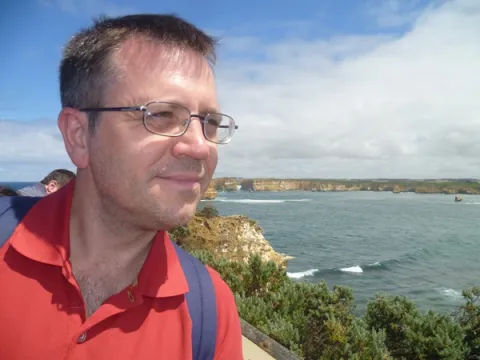About the project
This project aims to address the challenge of predicting land-sea exchanges of material in Arctic shelf seas. Employing numerical and semi-analytical models, we’ll reveal how vertical mixing impacts property and movement of the Arctic's shelf waters. Results will provide valuable insights for refining mixing parameterizations to improve climate predictions.
Because of highly variable forcings, including tides, wind, ice melting/formation, and surface heating/cooling, predicting the land-sea exchange of freshwater, salt, and heat in Arctic shelf seas remains a significant challenge, with implications for marine ecosystems and global climate change. By integrating diverse modeling techniques, this study aims to attain a profound understanding and accurate representation of currents and properties within the Arctic shelf sea waters. The approach involves three key steps:
Investigating spatio-temporal variability in Arctic shelf sea dynamics by analyzing the existing NEMO Arctic model and the kilometric Arctic model to be developed within the CANARI project.
Developing a semi-analytical model for the Arctic shelf seas, extending Stigebrandt (1981) and Wei et al. (2021), to isolate individual contributions from mixing processes (e.g., convective, wind-induced, tidal mixing, internal waves) to vertical mixing, current speed, and material transport.
Exploring the sensitivities of Arctic shelf sea dynamics to various forcing changes (e.g., wind, surface heat fluxes, freshwater discharge) across different timescales.
The findings will enhance our understanding of spatio-temporal variability in stratification and currents in Arctic numerical simulations and field observations, and provide valuable insights for refining vertical mixing parameterizations and accurately capturing variations of currents and water properties in Arctic shelf sea models.
This project is linked to prior and ongoing research:
- Utilizing completed numerical simulations, including diverse model configurations, from CLASS (Climate Linked Atlantic Sector Science)
- Leveraging insights from the ongoing CANARI project to inform the current study
Supervisory team
The supervisory team includes supervisors from several organisations, including our INSPIRE Partners. Please contact the Lead Supervisor for more information about the team.
Training
The INSPIRE DTP programme provides comprehensive personal and professional development training alongside extensive opportunities for students to expand their multi-disciplinary outlook through interactions with a wide network of academic, research and industrial/policy partners. The student will be registered at the University of Southampton and hosted at the National Oceanography Centre (NOC), Liverpool.
Specific training will include:
- Discipline-based training –relevant seminars and journal clubs; selected SOES modules (e.g., SOES3009, Shelf Seas and Shelf Edge Dynamics)
- Professional skills for research leadership – training workshops for making good presentations, time management, and paper/proposal writing
- Research methods training – modelling workshops (including the use of HPC (High Performance Computing) systems and JASMIN, the UK data analysis facility for environmental science), programming courses/webinars (Fortran, Python), and summer schools
- Career Development and Transferable Skills Training – presenting at domestic and international conferences, annual training programme organised by the University of Liverpool (Making an Impact)
